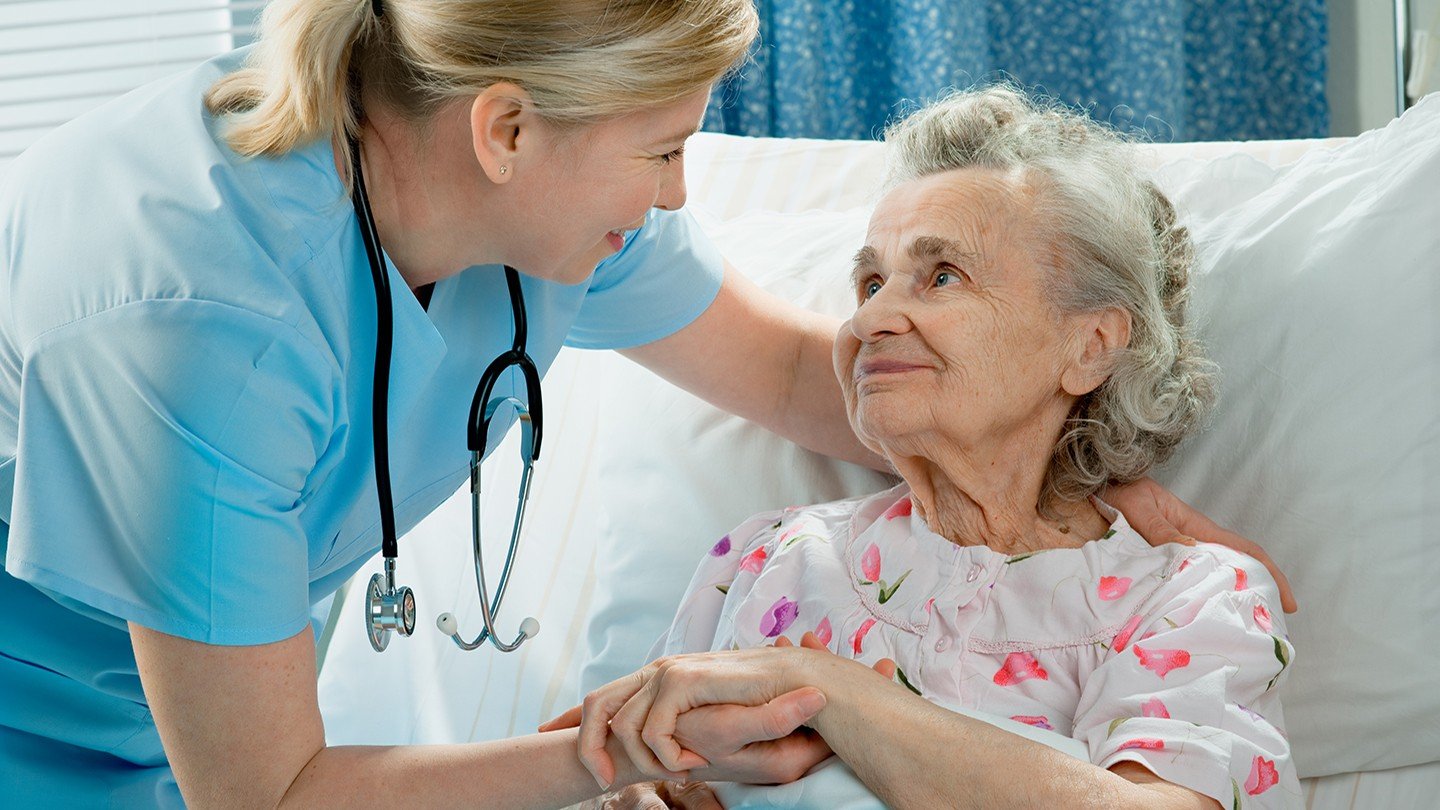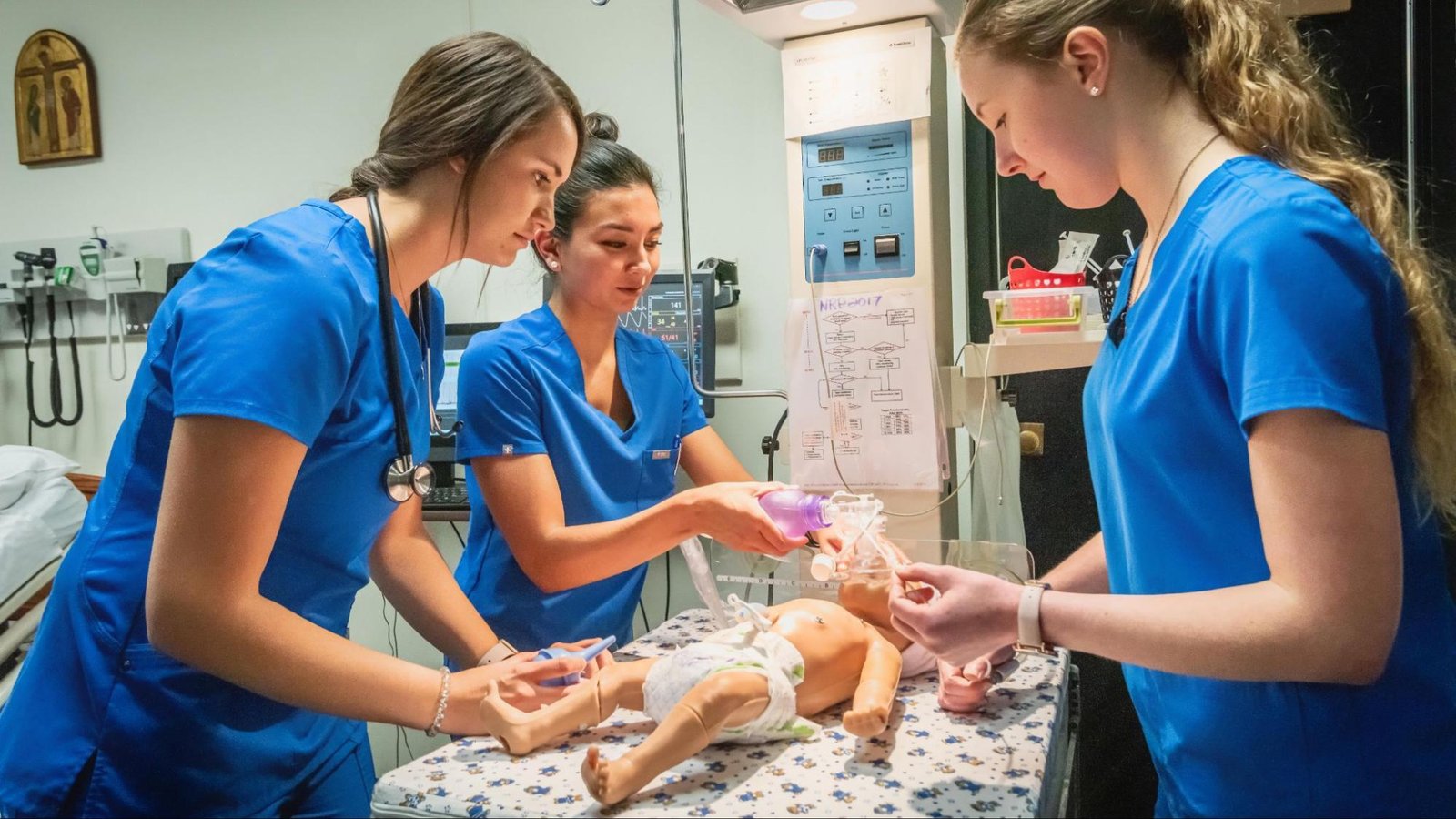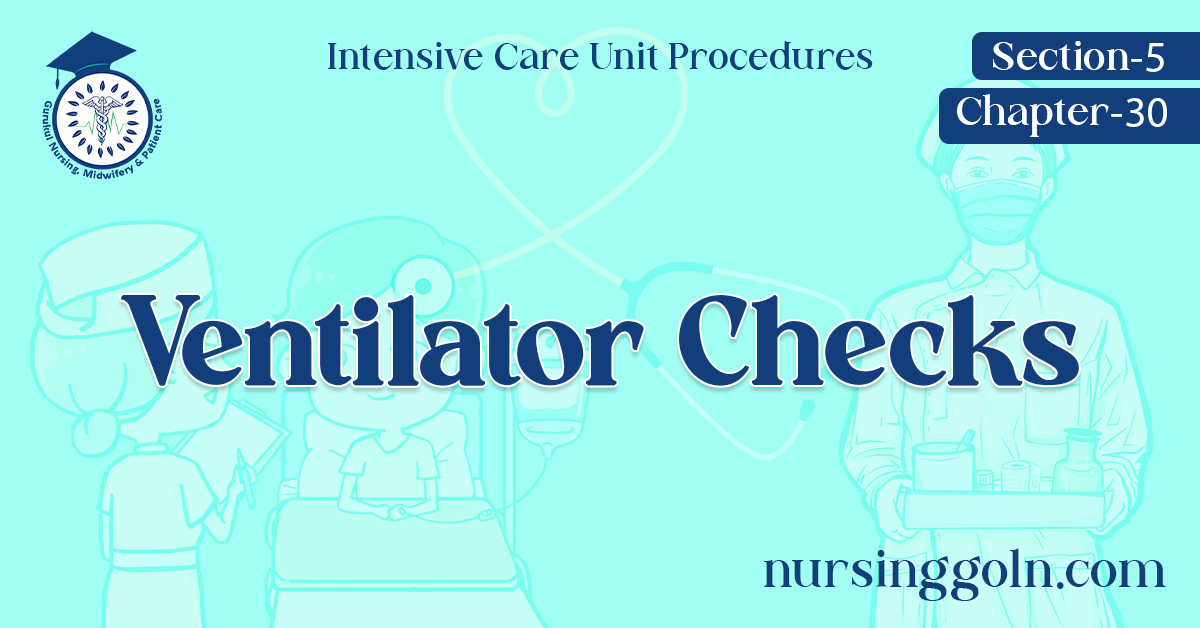Today our topic of discussion is Ventilator Checks.
Ventilator Checks

Ventilator Checks
The ventilator should be checked regularly for proper functioning, proper setting, appropriate alarm setting and proper delivery of humidification. Humidifier should be filled with water to the level indicating that it is full.
Heating level is adjusted so that the inspired gas is at 37°C. Warm airway temperature can improve mobilization of secretions. Water should be drained as it accumulates in the tubing of the ventilator. This can be avoided by the use of heated wire circuit.
Complications of Mechanical Ventilation
- Atelectasis occurs due to retained secretions, hypoventilation, and bed rest.
- Chest physiotherapy suctioning and adjustment of ventilator sighs.
- Hydration is the measures to combat this complication.
- Pneumothorax (Barotrauma): It occurs from barotrauma from positive pressure ventilation.
- Pressure is adjusted to normal level to prevent pneumothorax especially when positive end expiratory pressure is used.
- Oxygen toxicity: Oxygen toxicity occurs from high FIO, ventilator setting.
- Arterial blood gas is monitored. Positive end expiratory pressure is initiate FiO, is decreased.
- Infection: Patient on mechanical ventilator develops infection as there is loss of upper airway defense.
- Meticulous aseptic technique is required in all invasive procedures.
- Antibiotic therapy is initiated when necessary.
- Respiratory acid-base imbalance: Add dead space to the ventilator and decrease the tidal volume.
- Gastric ulceration: In a study, it was found that 40% of patient on positive pressure ventilation.
- Without prophylactic antacid developed gastric ulcer in 3 days. To prevent it administer antacid prophylactic and start on early nasogastric tube feeding.
Fluid Retention and Hemodynamic Alteration
Patients on mechanical ventilator develop fluid retention which is not associated with heart failure. Restriction of left ventricle filling and limitation of intrathoracic pump effect occurs with the use of positive end expiratory pressure.

Plan the fluid administration carefully. Monitor fluid balance and increase PEEP gradually.Psychological trauma. Panic has been the common psychological reaction found in patients who are on mechanical ventilation.
